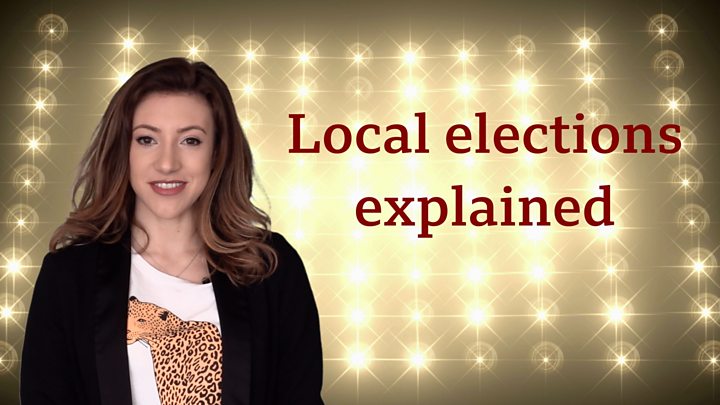
Before this week’s local elections, councillors have told how campaigns of abuse and intimidation have led them to fear for their safety.
In the past few months, councillors have been forced off the road, spat at and received death threats via the post, according to the Local Democracy Reporting Service.
Some have been issued with panic alarms or moved to safe houses.
There are 8,425 seats up for grabs in a total of 248 councils in England.
Thursday’s elections will be the first time candidates can choose not to publish home addresses on ballot papers.
Middlesbrough candidate Lewis Young (Lab) said he believed levels of abuse had escalated due to the anonymity offered by social media.
He said he had also been harangued in the street and told “traitorous” politicians who block Brexit “would be hanged”.
Mr Young, who is standing for the North Ormesby ward against Kerry Latham (Con) and Ashley Waters (Ind), said he often received aggressive and abusive emails.
He added: “There’s a feeling people can now treat politicians as ‘fair game’.
“I do know some people have considered resigning, or have resigned, because they really struggled with the personal political attacks.
“There have been times when I’ve wondered why I am bothering.”
Image copyright
Jayne Dunn
A panic alarm was installed in Jayne Dunn’s house
A survey by the Fawcett Society, which looked into how local government works for women, found 46% said “harassment or abuse from the electorate” was a barrier to them entering local politics.
Sheffield City Council cabinet member Jayne Dunn said she had faced “highly sexualised” online threats, had her garden broken into and been followed into a car park after meetings.
The 2015 break-in left her feeling so vulnerable police installed a panic alarm in her house.
Although she didn’t find out until later, at around the same time council leader Julie Dore had been moved to a safe house.
Ms Dunn, who was re-elected last year so does not face the polls this week, said: “It was pretty awful, I don’t know how I got through it.
“I don’t feel scared any more, but I am very wary and very aware. I have altered a lot of things about my life, I don’t run alone nearly as much as I used to.”
In recent months the Local Democracy Reporting Service has also revealed:
- Would-be councillors in Wakefield are ‘afraid of getting hurt’ on the campaign trail, because of the current political climate around Brexit
- A Sandwell councillor’s car was forced off the road, and the authority used a court injunction to stop an abuser approaching two councillors
- A young female Conservative councillor decided not to stand for election again, citing the abuse she faced
- A disabled former council leader stayed away from a council meeting because he feared for his safety
- Abusive messages were sent to an Isle of Wight councillor’s daughter in the run up to a controversial decision
Image copyright
Alice Perry
Alice Perry thinks poor behaviour online can be a “red flag” for someone’s offline behaviour
Solihull councillor Katy Blunt said she welcomed the rule change about candidates being able to choose not to publish home addresses on ballot papers.
She said it would help younger people feel more confident that becoming a councillor was something they can do safely.
Speaking about when she stood for election a year ago, she said: “I lived alone, I was 27, and everybody suddenly knew where I lived.
“I think if it’s put just one person off then that’s a sad day.”
- Why aren’t there more young councillors?
- Politician attacked while leafleting
- What to look out for in May’s local elections
Islington borough councillor Alice Perry has also welcomed the change.
Ms Perry, who had to turn to the police for help over persistent abuse in the past, said: “It’s important [for councillors] to be accessible, but it’s unacceptable to make threats of violence or carry out violence.
“We give out addresses of our surgeries and the town hall, and email addresses and phone numbers, so we are available but you don’t need people knowing your home address.”
London boroughs are not holding elections this year.
Image copyright
PA
More than 200 local councils in England have elections this week
The Local Government Association, which represents councils, said it was worried about attacks and intimidation and was looking into the scale of the problem.
A spokesman said councillors were used to the “rough and tumble” of politics, but added that assaults, threats and abuse, harassment and intimidation were unacceptable and “undermine the integrity of the democratic process”.
He added: “We are concerned that such behaviour may actively be discouraging people from putting themselves forward to stand as councillors. Nobody should feel intimidated or scared should they wish to take on the important role of representing their community.
“We need to send a strong and consistent message that attacks on public servants will not be tolerated.”
More about this story
This story was developed alongside the work of the Local Democracy Reporting Service (LDRS), a public service news agency.
The LDRS is funded by the BBC, provided by the local news sector and used by qualifying partners as part of a partnership between the BBC and the News Media Association.
For more information, click here.
Local elections 2019: Councillors and candidates ‘fear for safety’}

